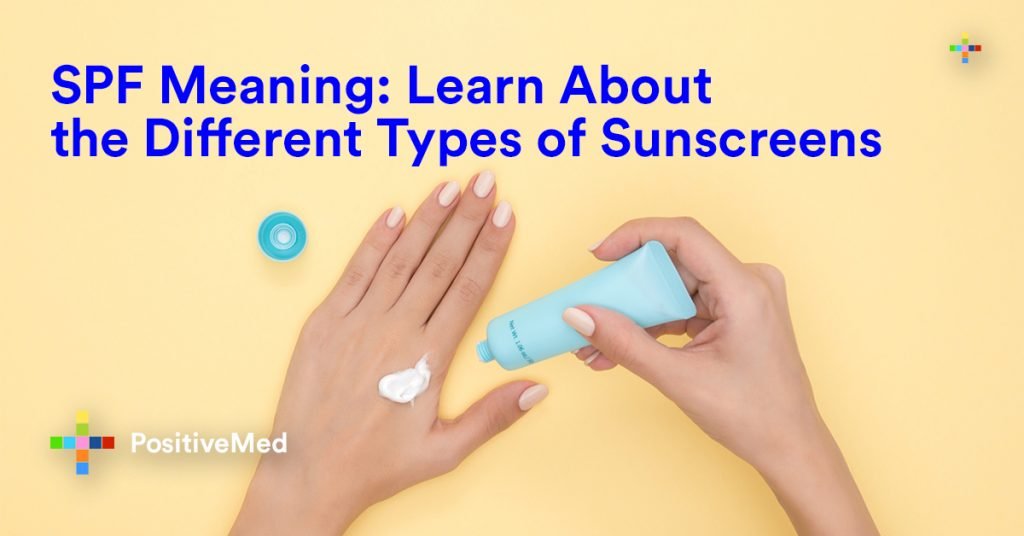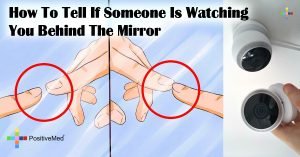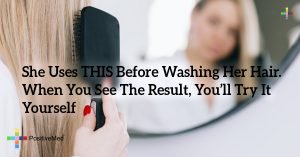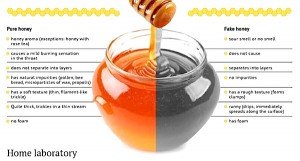If you become confused when you go shopping for sunscreen, you’re not alone. There are so many sun care products to choose from these days. How are you supposed to make sense of so many product claims and ingredient lists? You may not even understand the SPF meaning and the different types of sunscreens that are available at your local drugstore. Don’t worry. We can show you how to make sense of the sunscreen marketplace and how to choose the sunscreen product that will best meet the needs of you and your family.

What’s Sunscreen, Anyway?
Sun care products employ various ingredients to prevent the ultraviolet, or UV, radiation in sunlight from reaching your skin. There are actually two types of ultraviolet radiation, namely UVA and UVB, which can cause the
UVB sunlight has been identified as the primary cause of sunburn. UVA rays, on the other hand, penetrate more deeply into the skin, leading to skin sagging, wrinkling, leathering and other sunlight induced photoaging effects. Scientists have also implicated sunlight overexposure to the development of carcinogenic effects that may cause skin cancer. The ability of sunscreen products to shield consumers from UVA and UVB sunlight varies widely.
What Does SPF Mean?
It’s important that you understand SPF meaning and the ability of the various types of sunscreens to protect your skin before making a purchasing decision. Sun care products with an SPF factor of 15 or more were designed to protect your skin from UVB rays. An SPF sunlight protection factor measures the ability of a sunscreen product to prevent UVB rays from causing damage to the skin of you and your family. We can help you personalize the sunscreen shopping process. If your unprotected skin requires 20 minutes to turn a little red, you should buy a sunscreen product with an SPF factor of 15. The idea is that it should take 15 times longer for your skin to start turning red. This translates to approximately five hours of skin protection.
As a percentage, an SPF 15 sunscreen filters out about 93 percent of UVB sunlight. A sunscreen product with an SPF factor of 30 will filter out 97 percent of harmful sunlight, and an SPF 50 sunscreen product filters out 98 percent of the UVB rays. Even a small increase in protection may prove to be invaluable for someone who is light-sensitive or has a previous history of skin cancer. No sunscreen product has the ability to block all UV sunlight.
Unfortunately, the SPF factor model is far from perfect. The reality is that no sunscreen product remains effective more than two hours after being applied. You will have to reapply the sunscreen if you want to maintain the promised protection. Moreover, skin reddening is nothing more than a reaction caused by interaction with UVB sunlight. Reddening is not an indication of potential UVA damage. Skin damage can be caused by sunlight without your skin being sunburned.
Should You Apply Sunscreen to Your Skin?
Anyone that is more than six months of age should apply sunscreen on a daily basis. Even people that work inside are vulnerable to UV radiation exposure. Sunscreen should never be applied to the skin of children under the age of six months since their skin is sensitive to sunlight and the ingredients contained in sunscreen products. It’s better to use clothing and shade to protect the little ones.
What Sunscreen Should I Use?
It depends on how much time you spend in the sun. We recommend that you use a broad-spectrum sunscreen that provides protection against both UVA and UVB sunlight. At a minimum, most broad-spectrum sunscreen products contain ingredients to absorb both short and long sunlight wavelengths. Make sure you apply the recommended amount of sunscreen. Most consumers make the mistake of applying less sunscreen than they should.
Make sure you purchase a high-quality sunscreen product. We recommend that you select a broad-spectrum sunscreen that offers an SPF factor of no less than 15. Even if the SPF meaning and the types of sunscreens are confusing, you can always search for a Skin Cancer Foundation’s Seal of Recommendation. This means that the product meets the recommended standards for effectiveness and safety. Finally, remember to follow the product directions and never depend on sunscreen products alone to protect your skin from UV sunlight. Sunscreen is only one part of an effective sunlight protection strategy.
-Marc Kaplan
CEO, Save Rite Medical
____________________

Marc Kaplan is founder and CEO of Save Rite Medical — the leading provider of wholesale medical supplies. A salesman by day and educator by night, Marc enjoys providing valuable ways and alternatives to living a healthier lifestyle.







